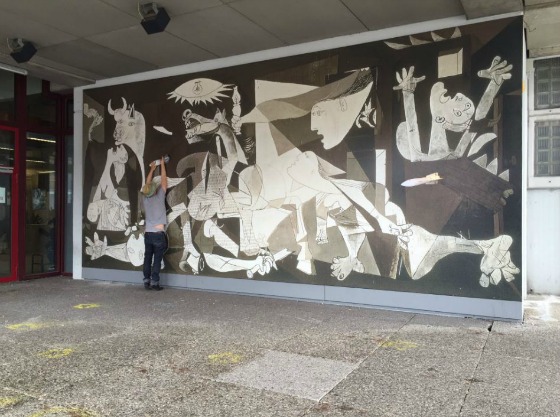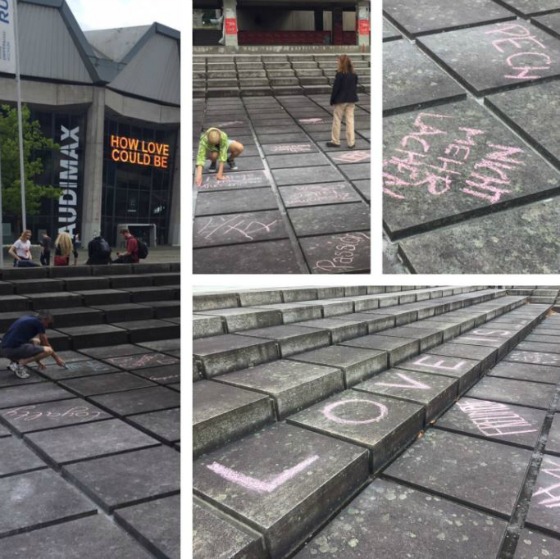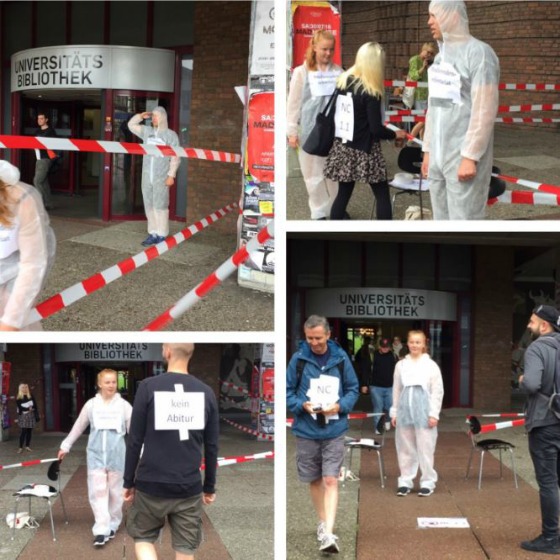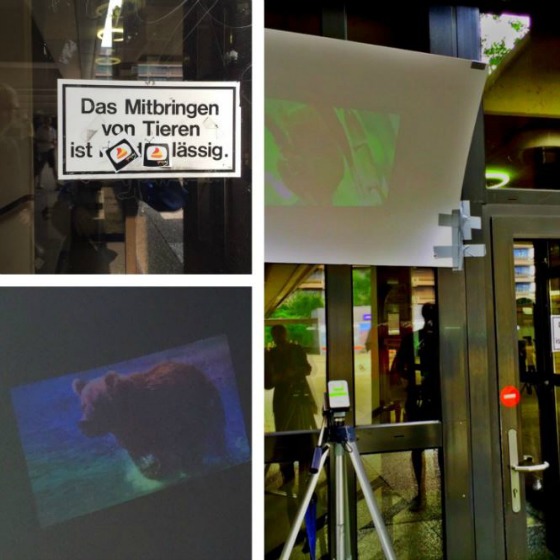De Montfort University Leicester (DMU) academics have supported students in Germany to produce arts projects across a wide range of locations on their university campus.

Florian brought modern warfare to Guernica
These site-specific works and performances were all designed for and set in carefully chosen locations as a response to the surroundings, context and architecture.
Rob Brannen, Head of DMU’s School of Visual and Performing Arts, and Jill Cowley, Programme Leader for Performing Arts, spent a week tutoring students and running workshops at Ruhr University in Bochum enabling them to stage performances and create art installations.
Invited to offer a British cultural perspective, the opportunity arose from Rob’s role as board member of the International University Theatre Association (IUTA).
Following an exploration of the university’s campus, the six students were encouraged to embrace different mediums ranging from performance and installation to photography, video and projections.

How Love Could Be - Melanie askes people to share their thoughts
Supported by the DMU academics, the students - a mixture of both undergraduate and postgraduate from a range of disciplines such as fine art, philosophy, geography and maths – tackled a number of engaging and thought-provoking performances.
Florian caused controversy on campus by placing his modern warfare artwork - such as rockets, drones and jets - over a mural of Picasso’s famous Guernica painting.
Regarded by many as one of the most moving and powerful anti-war paintings in history, created by Picasso in 1937 as a response to the bombing of Guernica by Nazi German and Fascist Italian warplanes, Florian’s project especially hit a chord with older students on campus.

Monika's cordoned off library
Melanie worked with an LED installation created by British artist Tim Etchells as part of a festival in Bochum exploring deindustrialisation. The large-scale ‘How Love Could Be’ slogan was originally mounted on Bochum’s Deutsches Bergbau-Museum, a mining museum and well-known landmark.
To contextualise the slogan, Melanie asked people to write down what love means to them in pink chalk on the campus’ concrete slabs. By the end of the day the ground was filled with heart-warming messages in a number of different languages.
Taking a social experimental approach, Monika cordoned off the library’s main entrance only allowing entry to those with high enough NC grades, the equivalent of A-level grades. Those with lower grades were shown to a different entrance, causing much bewilderment.
Johannes cleverly challenged the ‘animals forbidden’ notice on campus, by projecting films of animals around the building.

Johannes brought virtual animals on campus
Jill said: “Considering we worked with students from different disciplines who opted into the module, I was really impressed that they rose to the challenge and produced such brave work. It’s not easy to create sight-site-specific work in public spaces where you are open to scrutiny.
“Our Performing Arts students at DMU already study a site-specific unit, so this valuable partnership we’ve built could lead to future opportunities for them to collaborate with German students.”
Meanwhile, DMU’s Vice-Chancellor Professor Dominic Shellard will be in Germany tomorrow, to celebrate EU staff and students and promote the university’s global outlook. The event, in Berlin, is part of DMU’s #LoveInternational campaign organised in response to the EU referendum result.
Posted on Monday 29 August 2016